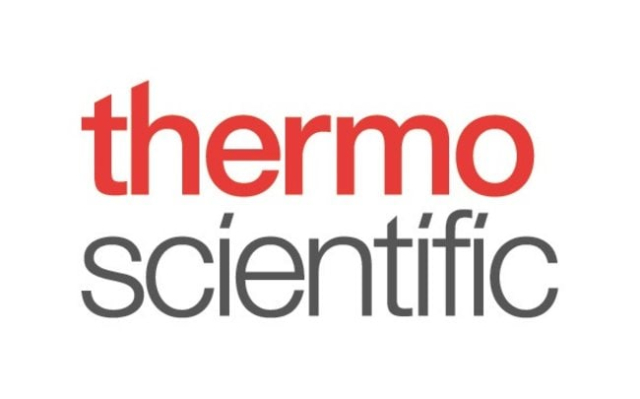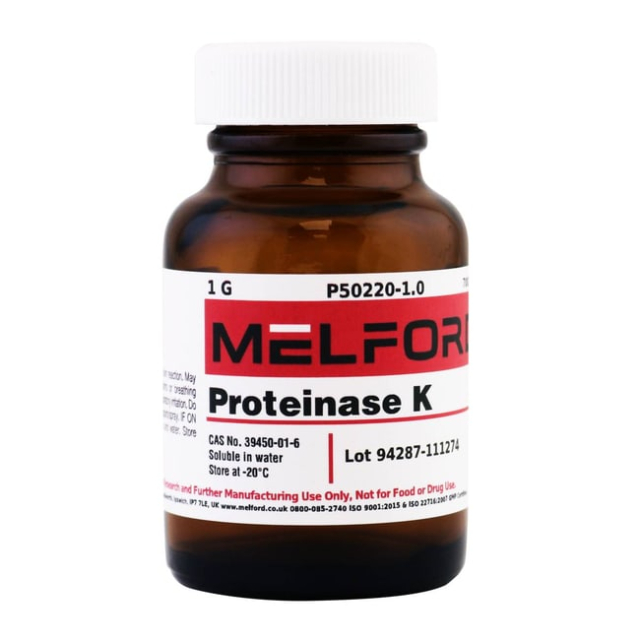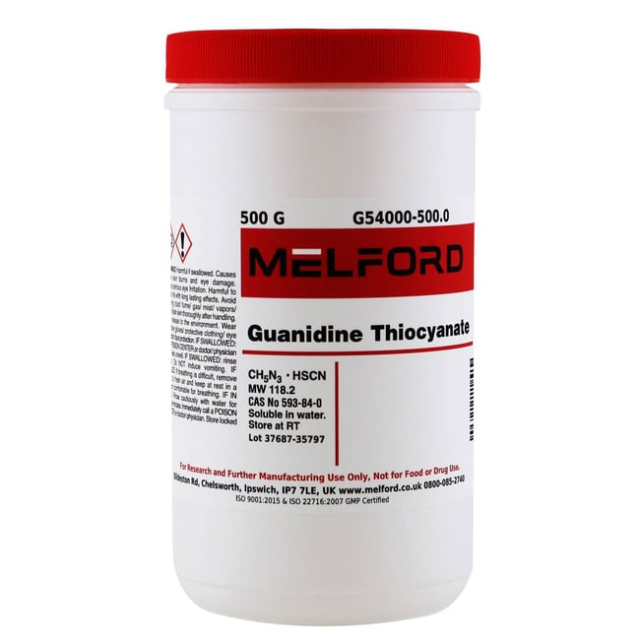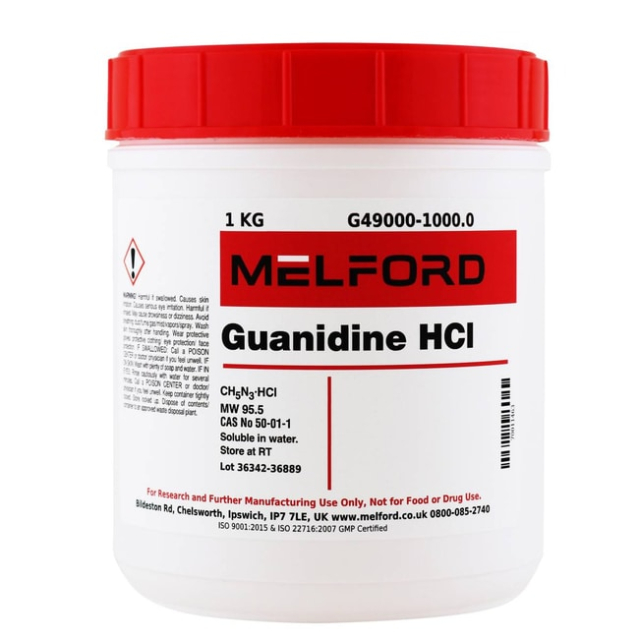Melford Proteinase K
From Tritirachium album.
From Tritirachium album.
From Tritirachium album.
From Tritirachium album. Serine protease for proteolytic inactivation of nucleases during isolation of DNA and RNA.
Description
Proteinase K is a highly reactive serine protease that displays an ability to digest native proteins, thereby inactivating enzymes such as DNase and RNase without recourse to a denaturation process. It is the most powerful proteinase among all proteinases characterized so far. It cleaves at the peptide bond adjacent to the carboxylic acid group of aliphatic, aromatic, or hydrophobic amino acids.
Recombinant Proteinase K is used in the isolation or preparation of high molecular weight nucleic acids. It is highly pure has a higher specific activity and is more stable at room temperature when compared to native Proteinase K.
Recombinant Proteinase K is expressed from yeast Pichia pastoris with a cloned gene encoding Engyodontium album (Tritirachium album) endolytic protease.
Applications
Reconstitution Recommendations:
For stock solution preparation, we suggest reconstituting the lyophilized powder in a buffer (20 mM Tris, 1 mM CaCl2, 2% Glycerol, pH 7.4).
Calcium is important for thermo-stability of Proteinase K and pH value is critical for high solubility.
The use of cryoprotectant glycerol to a final concentration of 50% in stock solution is to prevent freeze/thaw damage. Proteinase K retained 99% of activity after 12 freeze/thaw cycles in stock solution. Avoid repeated freezing and thawing to prevent precipitation of the protein if glycerol is not added.
Proteinase K solution remains active over a broad pH range (4.0-12.5, often used in range of 7.5-9.0) and over a broad temperature range of 25°C to 75°C. Solution remains sterile and stable for at least 12 months at 4°C.
Caution: Proteinase K Recombinant Lyophilized Powder is not sterile. Stock solution can be prepared as a 20-40 mg/mL in 20 mM Tris-HCl buffer, sterilized using a 0.22 μm filter. Stock solution can be stored in 50% glycerol in aliquots at a wide temperature range of 24°C to -80°C.
For sterile filtration, we recommend using PES pr PVDF membranes with low protein binding.
Composition (NO ADDITIVES):
Specifications:
CAS : 39450-01-6
Quantité : 500 mg



